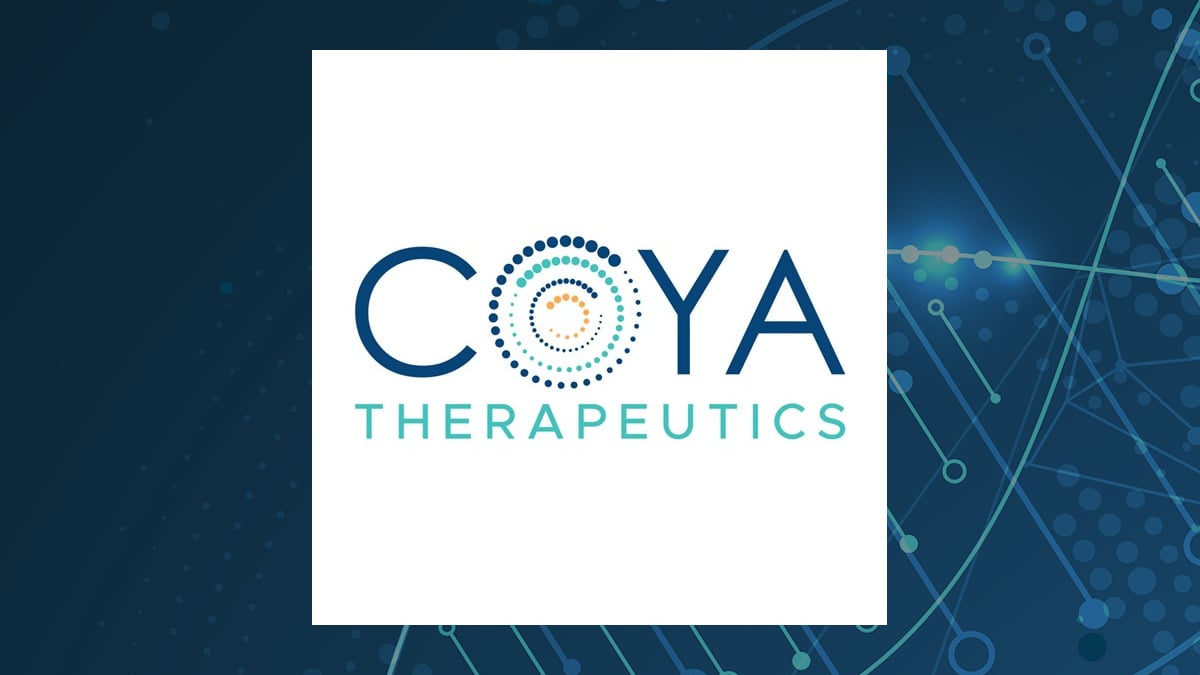GRI Bio (NASDAQ:GRI – Get Free Report) and Coya Therapeutics (NASDAQ:COYA – Get Free Report) are both small-cap medical companies, but which is the better business? We will contrast the two businesses based on the strength of their earnings, profitability, risk, valuation, analyst recommendations, institutional ownership and dividends.
Volatility & Risk
GRI Bio has a beta of -2.04, suggesting that its share price is 304% less volatile than the S&P 500. Comparatively, Coya Therapeutics has a beta of 0.46, suggesting that its share price is 54% less volatile than the S&P 500.
Analyst Ratings
This is a summary of current recommendations for GRI Bio and Coya Therapeutics, as provided by MarketBeat.com.
| Sell Ratings | Hold Ratings | Buy Ratings | Strong Buy Ratings | Rating Score | |
| GRI Bio | 0 | 0 | 1 | 0 | 3.00 |
| Coya Therapeutics | 0 | 0 | 3 | 0 | 3.00 |
Profitability
This table compares GRI Bio and Coya Therapeutics’ net margins, return on equity and return on assets.
| Net Margins | Return on Equity | Return on Assets | |
| GRI Bio | N/A | -331.02% | -174.48% |
| Coya Therapeutics | N/A | -31.63% | -27.76% |
Valuation and Earnings
This table compares GRI Bio and Coya Therapeutics”s revenue, earnings per share (EPS) and valuation.
| Gross Revenue | Price/Sales Ratio | Net Income | Earnings Per Share | Price/Earnings Ratio | |
| GRI Bio | N/A | N/A | -$13.04 million | N/A | N/A |
| Coya Therapeutics | $6.00 million | 17.60 | -$7.99 million | ($0.65) | -9.72 |
Coya Therapeutics has higher revenue and earnings than GRI Bio.
Insider & Institutional Ownership
34.0% of GRI Bio shares are owned by institutional investors. Comparatively, 39.8% of Coya Therapeutics shares are owned by institutional investors. 0.3% of GRI Bio shares are owned by company insiders. Comparatively, 12.0% of Coya Therapeutics shares are owned by company insiders. Strong institutional ownership is an indication that hedge funds, endowments and large money managers believe a company will outperform the market over the long term.
Summary
Coya Therapeutics beats GRI Bio on 9 of the 9 factors compared between the two stocks.
About GRI Bio
 GRI Bio, Inc., a clinical-stage biopharmaceutical company, focuses on treating inflammatory, fibrotic, and autoimmune diseases in the United States. Its product pipeline comprises GRI-0621, which is in phase II clinical development for the treatment of idiopathic pulmonary fibrosis; GRI-0803 which is in phase I trial for the treatment of systematic lupus erythematosus; GRI-0124, which is in pre-clinical development for the treatment of primary sclerosing cholangitis; and GRI-0729 in pre-clinical development. The company also develops ADAIR and ADMIR for treatment of attention -deficit/hyperactivity disorder. GRI Bio, Inc. was formerly known as Glycoregimmune, Inc. GRI Bio, Inc. was founded in 2009 and is based in LA Jolla, California.
GRI Bio, Inc., a clinical-stage biopharmaceutical company, focuses on treating inflammatory, fibrotic, and autoimmune diseases in the United States. Its product pipeline comprises GRI-0621, which is in phase II clinical development for the treatment of idiopathic pulmonary fibrosis; GRI-0803 which is in phase I trial for the treatment of systematic lupus erythematosus; GRI-0124, which is in pre-clinical development for the treatment of primary sclerosing cholangitis; and GRI-0729 in pre-clinical development. The company also develops ADAIR and ADMIR for treatment of attention -deficit/hyperactivity disorder. GRI Bio, Inc. was formerly known as Glycoregimmune, Inc. GRI Bio, Inc. was founded in 2009 and is based in LA Jolla, California.
About Coya Therapeutics
 Coya Therapeutics, Inc., a clinical-stage biotechnology company, engages in the development of proprietary medicinal products to modulate the function of regulatory T cells (Tregs). The company's product candidate pipeline is based on therapeutic modalities, such as Treg-enhancing biologics, Treg-derived exosomes, and autologous Treg cell therapy. It is developing COYA 101, an autologous regulatory T-cell product candidate that has completed Phase 2a clinical trial for use in the treatment of Amyotrophic Lateral Sclerosis. The company's product candidates in IND-enabling studies include COYA 301, a low-dose interleukin 2 Treg-enhancing biologic, which is in Phase 2 clinical trial for use in the treatment of Frontotemporal Dementia; and COYA 302, a biologic combination for subcutaneous administration intended to enhance Treg function while depleting T effector function and activated macrophages for use in the treatment of neurodegenerative and autoimmune diseases. It is also developing COYA 201, an antigen directed Treg-derived exosome product candidate that is in preclinical stage for use in the treatment of neurodegenerative, autoimmune, and metabolic diseases; and COYA 206, an antigen directed Treg-derived exosome product candidate, which is in discovery stage. The company has a collaboration with Dr. Reddy's Laboratories SA for the development and commercialization of COYA 302, an investigational combination therapy for treatment of amyotrophic lateral sclerosis. The company was incorporated in 2020 and is headquartered in Houston, Texas.
Coya Therapeutics, Inc., a clinical-stage biotechnology company, engages in the development of proprietary medicinal products to modulate the function of regulatory T cells (Tregs). The company's product candidate pipeline is based on therapeutic modalities, such as Treg-enhancing biologics, Treg-derived exosomes, and autologous Treg cell therapy. It is developing COYA 101, an autologous regulatory T-cell product candidate that has completed Phase 2a clinical trial for use in the treatment of Amyotrophic Lateral Sclerosis. The company's product candidates in IND-enabling studies include COYA 301, a low-dose interleukin 2 Treg-enhancing biologic, which is in Phase 2 clinical trial for use in the treatment of Frontotemporal Dementia; and COYA 302, a biologic combination for subcutaneous administration intended to enhance Treg function while depleting T effector function and activated macrophages for use in the treatment of neurodegenerative and autoimmune diseases. It is also developing COYA 201, an antigen directed Treg-derived exosome product candidate that is in preclinical stage for use in the treatment of neurodegenerative, autoimmune, and metabolic diseases; and COYA 206, an antigen directed Treg-derived exosome product candidate, which is in discovery stage. The company has a collaboration with Dr. Reddy's Laboratories SA for the development and commercialization of COYA 302, an investigational combination therapy for treatment of amyotrophic lateral sclerosis. The company was incorporated in 2020 and is headquartered in Houston, Texas.
Receive News & Ratings for GRI Bio Daily - Enter your email address below to receive a concise daily summary of the latest news and analysts' ratings for GRI Bio and related companies with MarketBeat.com's FREE daily email newsletter.
